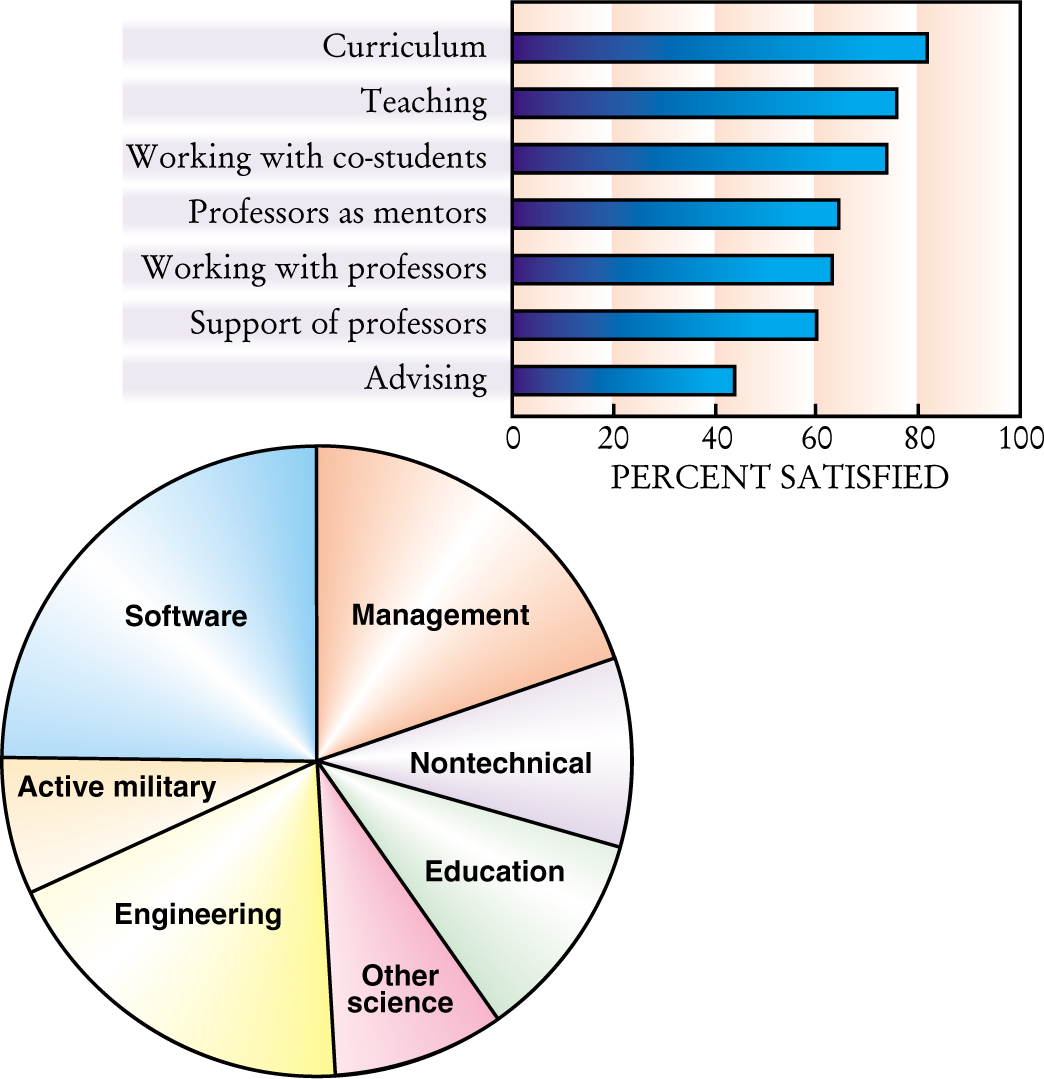Physics Bachelors at Work
DOI: 10.1063/1.1522212
A physics bachelor’s degree is good preparation for lots of different careers. That claim is oft repeated within the physics community, but now the American Institute of Physics has data to prove it. The first in a series of reports based on AIP’s pioneering survey of people several years after graduation came out in August and focuses on the roughly one-third of graduates who hold no additional degrees and are not primarily students.
Conducted in late 1998 and early 1999, the survey involved people who received a bachelor’s degree in physics from one of 149 US colleges and universities five to eight years earlier—in the period 1991–93, during what was, the report notes, both a nationwide recession and a boom time for the IT industry.
Of the 400 or so survey respondents whose highest degree is a bachelor’s, 96% are employed, with 75% working in science-related jobs. The largest blocks are in software (24%), management (20%), and engineering (19%). Physics bachelors also work, for example, as teachers, as lab technicians, and in the military. And some 10% of them hold nontechnical jobs for which no college degree is required.
The bulk of the working bachelors use their physics training in their current jobs. Most said that it had prepared them well for such things as scientific problem-solving. But they overwhelmingly reported that their education had not adequately prepared them in terms of teamwork, oral communication skills, or—in the case of those working in software—programming. Sixty percent said they would major in physics if they had it to do again.
Five to eight years after graduation, 60% of the physics bachelors continued to work in the same area as their first “career path” job—defined in the survey as “a job that will help you in your future career or a job in the field in which you want to make your career.” This, the report says, means that physics departments can play a potentially vital role in mentoring undergraduates through the process of landing their first real jobs.
These and other data are available in the Early Careers of Physics Bachelors report. Single copies may be obtained free of charge from ALP, Statistical Research Center, One Physics Ellipse, College Park, MD 20740; e-mail stats@aip.org

Degrees of satisfaction: Five to eight years after graduation, physics bachelors who hold no additional degrees and are not primarily students work in many employment sectors (pie chart) and, looking back, say they are satisfied with various aspects of their degree programs (bar chart).





